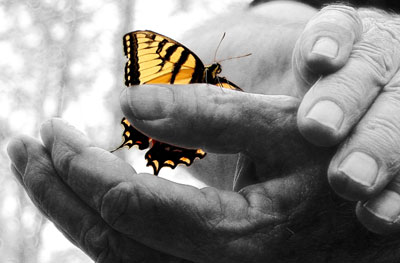All Nonfiction
- Bullying
- Books
- Academic
- Author Interviews
- Celebrity interviews
- College Articles
- College Essays
- Educator of the Year
- Heroes
- Interviews
- Memoir
- Personal Experience
- Sports
- Travel & Culture
All Opinions
- Bullying
- Current Events / Politics
- Discrimination
- Drugs / Alcohol / Smoking
- Entertainment / Celebrities
- Environment
- Love / Relationships
- Movies / Music / TV
- Pop Culture / Trends
- School / College
- Social Issues / Civics
- Spirituality / Religion
- Sports / Hobbies
All Hot Topics
- Bullying
- Community Service
- Environment
- Health
- Letters to the Editor
- Pride & Prejudice
- What Matters
- Back
Summer Guide
- Program Links
- Program Reviews
- Back
College Guide
- College Links
- College Reviews
- College Essays
- College Articles
- Back
The Butterfly’s Plight MAG
In the midst of darkness, there is beauty. On last trip to Guangzhou, the city of my birth, I was nine. As I stepped out of my air-conditioned room onto the balcony, a blanket of sweltering heat engulfed me. Hundreds of people chattered on the streets below, headed to school, to stores, to jobs. Colored bottles and clumps of plastic floated on the nearby river. I turned my attention away from the cloud of noise and visual pollution back to my balcony with its miniature mandarin tree. It sat in a clay pot and, on one of its delicate branches, next to a tiny round fruit, hung a green chrysalis. For days I had been watching it, fretting to my mother over the caterpillar's fate.
“But we don't have the right kind of leaves to take care of it! Why did it pick our mandarin tree? What will it eat when it gets out?”
“Darling, the butterfly will have wings. It has to survive independently.”
As I pushed the sliding glass door aside one evening, my anxiety increased. The chrysalis on the branch was reduced to a clear, shriveled husk. My eyes widened at the evidence of the creature's emergence from its cocoon. I wanted to pause and mute my heart, which thrashed against my ribs. I wanted to stop my breathing, harsh and ragged with anticipating this moment and the smoggy, humid air. I inhaled slowly; the magic of the creature's awakening from its lengthy sleep lingering on my breath. I wanted to do anything, everything to ensure that I would not startle the life before me.
What caught my attention was its body: Ribbons of rich, charcoal black and splashes of white wove around its vivid orange wings. The trio of colors blended seamlessly like deep rivers melting into a flood plain. Supported by a leaf on one slender leg, the creature curled its proboscis delicately and extended its antennae – a lithe dancer on a stage of branches. How long had it rested there, free from its cocoon? Minutes? Hours?
Suddenly, I felt the vibration of the sliding door, and a voice call out, “Sunny! Dinner!”
Instantly the monarch stretched its wings for its first flight, carried into the open sky by the lightness of its body. As the butterfly increased its distance from the tree, conflicting emotions flooded through me. My own body leaned unconsciously over the railing, trying to close the widening space between us. My last significant memory in China is of the heavy, gray atmosphere engulfing the butterfly. Although the image of the creature faded with distance, the vividness of my memory has not succumbed to the same fate.
Eight years later, back in the United States, I sit in Environmental Science and learn about industrial smog, particulate pollutants, and the Asian Brown Cloud – a layer of air pollution that blankets parts of Asia. I learn exactly how toxins cross the delicate membranes of animals and accumulate in their organs, causing physiological damage.
I wonder if the butterfly stood a fighting chance against China's air pollutants. Did it survive long enough to journey to a land free of industrial heat and pervasive smog? As inhabitants of this earth, it is our duty to ensure that natural capital is preserved. Instead of valuing business and profit over the health of our environment, we should work to decrease our global footprint. We should harness renewable energy sources and find cleaner alternatives to current methods of waste disposal.
I wonder about the future of the human race. When will we realize that we have destroyed the delicate web of Earth's harmony and that there are consequences to our actions? The damage we have inflicted is severe but not irreversible. Once we realize the true impact of our actions on the earth, perhaps we will bring back a world where the blue sky is never threatened by gray streaks, where songbirds never stop singing, where little girls don't have to wonder whether butterflies survive the oppressive gray fog. Until we realize, until we fight the darkness, I will always be wondering.

Similar Articles
JOIN THE DISCUSSION
This article has 0 comments.
